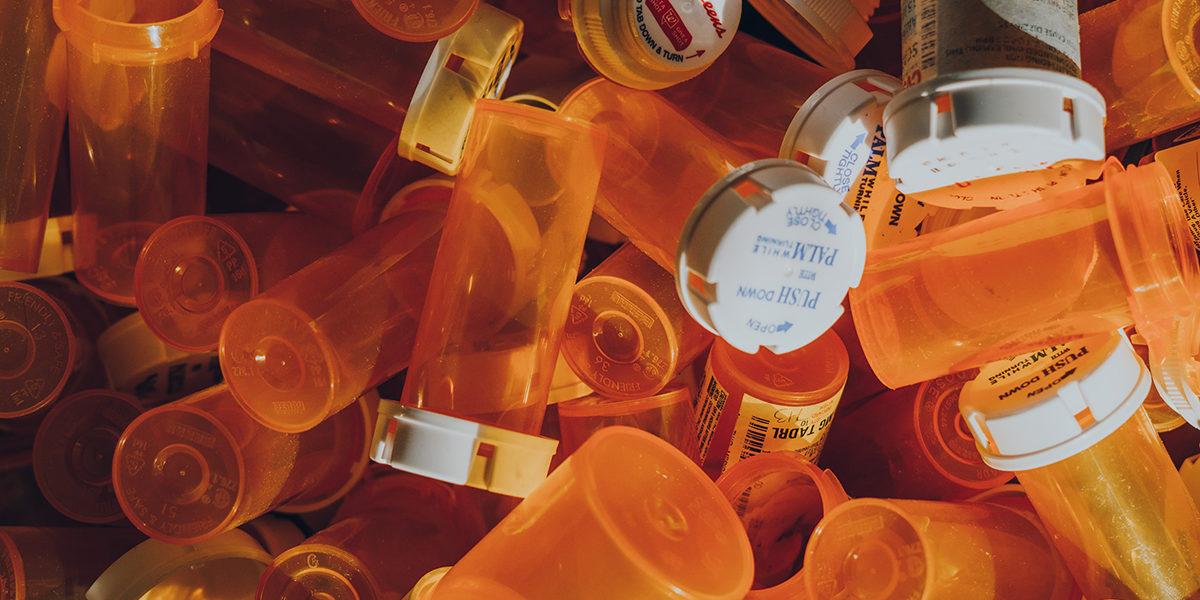When a patient enters a facility for drug treatment, one might hazard a guess that his or her main problem is a substance use disorder. At New Hampshire drug rehab, we know that is not always the case. In fact, according to Process R.N., Nicole White, patients often admit to treatment misdiagnosed with the wrong mental health disorder and on the wrong medication. When asked, many of these patients have no education around the medication they are taking or why they are taking it.
The National Institute of Mental Health reports that, in 2014, “20.2 million adults in the U.S. had a substance use disorder and 7.9 million had both a substance use disorder and another mental illness”. When a patient presents with both a substance use disorder and another mental illness, these are defined as “co-occurring” disorders. Given that roughly 40% of patients enter addiction treatment with a co-occurring disorder, it’s no surprise that providers encounter pre-existing prescriptions for mental health medications. But why are so many people misdiagnosed and incorrectly prescribed?
Nicole’s theory is that patients aren’t receiving enough time with providers prior to entering post-detox treatment programming. “[Providers] have grown accustomed to diagnosing people in short timeframes,” Nicole said. “I don’t believe detox centers should be diagnosing patients if they are only going to be there for a week. We get people who got a diagnosis their first day in detox, which is completely inaccurate because they were presenting in [active addiction]”.
“I think we minimize the importance of putting patients on medication and we need to get back to valuing what the patient is experiencing in terms of symptoms,” Nicole elaborated. “In the mental health fields, we have a disadvantage – there are no good measures other than patient self-reporting to be able to see what’s working and what’s not working. That’s why I think it’s important to start one medication at a time. Often I will meet somebody who started on two or three medications, and they are still experiencing symptoms. Now we don’t know what’s working and what’s not”.
Genomind DNA Testing at the Process Recovery Center

At the Process Recovery Center, an addiction treatment center in New Hampshire, we’ve started streamlining the medication process. The first, and most important step, is to determine the accuracy of a diagnosis. Making an accurate diagnosis requires time. Substance use symptomology can mimic other mental health symptoms. A patient needs time to settle into early recovery before a provider can discern between the mechanisms of substance use disorder and other co-morbid conditions. Patients who are misdiagnosed often experience feelings of shame that exacerbate rather than mitigate their substance use disorder. Moreover, misdiagnosis increases the likelihood that a patient will become resistant to treatment. After all, how can we expect people to have faith in a system that fails them – especially more than once?
Once a diagnosis has been determined or confirmed, we offer our patients Genomind genetic testing. Literature published by Genomind Inc. states that the Genecept Assay is “designed to help clinicians optimize treatment decisions and choose medications more likely to be safe and effective”. The Genecept Assay “identifies variations in 18 key genes relevant to psychiatric treatment that indicate which therapies may be more likely to be successful or pose a greater risk of adverse events.” Patients who choose Genomind testing receive a painless cheek swab, and results are available 3-5 business days from receipt by the lab.
The Benefits of Genomind Genetic Testing

While Genomind testing does not tell you the exact medication you should take according to your genes, it does isolate which class of medication is most likely to be effective based on your genetic profile, and which medications may cause unwanted side effects or adverse events. This is why it makes for an effective tool at New Hampshire drug rehab.
Some patients, for example, may have a gene that hinders SSRI (selective serotonin reuptake inhibitor) medication. Without Genomind testing, these patients may try multiple SSRIs before realizing that this class of medication is not effective for them. This experimental process can cause patients to become discouraged and opt out of treatment altogether. Genomind asserts that a whopping “two-thirds of patients don’t respond to first-line treatment for depression”. When a patient is not receiving adequate care for a co-occurring mental health disorder, the likelihood that he or she will maintain long-term addiction recovery decreases significantly.
In clinical trials, Genomind reports that “87% of patients demonstrated clinically measurable improvement,” and, “of the 69% reported as treatment resistant, 91% demonstrated a clinically measurable improvement”.
Appropriate therapeutic interventions for co-occurring disorders are key to relapse prevention, which is why the Process Recovery Center is the first drug treatment facility in New Hampshire to administer Genomind testing.
In conclusion, Genomind DNA testing is an effective tool in addiction treatment. If you have any questions about accessing the Genecept Assay – to include admission to our treatment program, insurance coverage, and cost, please contact us or visit the Genomind website.
Autumn Khavari is the Process Recovery Center’s in-house writer. She received an education in Substance Use Counseling from Beal College in Bangor, Maine.



